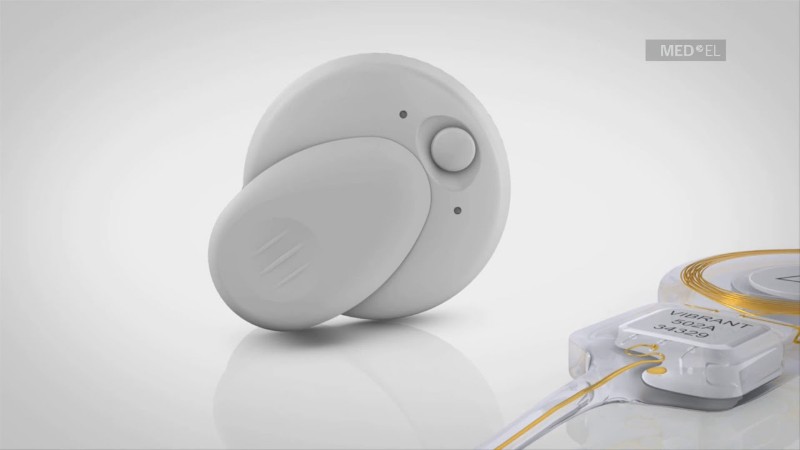The Independence Through Enhancement of Medicare and Medicaid (ITEM) Coalition, composed of 12 organizations, is urging the Centers for Medicare and Medicaid Services (CMS) to classify fully implanted active middle ear hearing devices as prosthetics for Medicare coverage purposes.
In a letter directed at CMS, the coalition requested clarity and reconsideration regarding the eligibility of these devices under Medicare’s guidelines. These advanced hearing devices, which are surgically implanted within the middle ear, provide an alternative to traditional hearing aids for adults with moderate to severe hearing loss.
This group of advocates highlights that many individuals who struggle with conventional hearing aids due to discomfort or limitations in sound quality may benefit significantly from fully implanted hearing devices.
Unlike traditional aids, which require external components, these devices are entirely embedded in the ear and leverage the ear’s natural anatomy to transmit sound. This design offers a range of benefits, including improved sound clarity, a more natural listening experience, and greater convenience for users who may find external devices challenging to wear or maintain.
The coalition’s letter emphasized the growing need for Medicare to address gaps in coverage for innovative medical technologies. According to the ITEM Coalition, the absence of clear coverage guidelines has resulted in barriers for those who could benefit from these devices.
By advocating for these devices to be recognized as prosthetics under Medicare, the coalition aims to ensure access to critical healthcare advancements for individuals with hearing impairments, ultimately promoting independence and improved quality of life.
Key Takeaways
The ITEM coalition is urging CMS to classify fully implanted active middle ear hearing devices as prosthetics for Medicare coverage purposes.
- Fully implanted hearing devices offer an alternative to traditional hearing aids for adults with moderate to severe hearing loss, providing improved sound clarity and a more natural listening experience.
- Clear Medicare guidelines are critical for individuals with hearing impairments to access advanced solutions that enhance independence and social engagement.
- The ITEM Coalition advocates for CMS to create precise eligibility criteria for fully implanted devices, ensuring equitable access to the latest advancements in medical technology.
Why clear Medicare coverage matters
Clear Medicare guidelines for fully implanted hearing devices are critical, as they offer individuals with hearing impairments access to advanced solutions that enhance both independence and social engagement.
The ITEM Coalition highlights the need for CMS to create precise eligibility criteria for these devices, particularly given their unique functionality compared to traditional hearing aids. Fully implanted devices work by bypassing damaged areas in the middle ear, using a sensor that captures sound vibrations naturally. This technology eliminates the need for external components, allowing users to benefit from an uninterrupted hearing experience.
At present, Medicare does not cover these fully implanted devices as prosthetics, creating a significant gap in care for hearing-impaired seniors and other individuals. As a result, patients and healthcare providers face uncertainty when trying to access these devices through Medicare, with many eligible individuals left unable to pursue them.
This ambiguity underscores the importance of CMS’s role in establishing clear, actionable guidelines, which would help millions of Americans with hearing impairments access critical devices that improve their quality of life.
The ITEM Coalition asserts that many older adults with hearing impairments could lead more active and fulfilling lives if given access to fully implanted devices. Seniors, who are more likely to experience hearing loss as they age, often face challenges in social engagement and daily communication.
For these individuals, access to fully implanted devices could mean reduced isolation, greater independence, and an enhanced sense of dignity and self-reliance. The coalition further argues that this issue is not only a healthcare issue but also of social justice, as hearing-impaired individuals deserve equitable access to the latest advancements in medical technology.
The esteem and acclaim implants
Envoy Medical, a key developer of implantable hearing devices, has introduced two advanced solutions: the Esteem Fully Implanted Active Middle Ear Implant (FI-AMEI) and the Acclaim Cochlear Implant (CI).
These devices are revolutionizing the hearing aid industry by offering fully implantable solutions for those with moderate to profound hearing loss. Unlike traditional hearing aids that sit outside the ear, both the Esteem FI-AMEI and Acclaim CI are surgically placed entirely within the body, providing a more natural and streamlined hearing experience.
The Esteem FI-AMEI is specifically designed for individuals with moderate to severe sensorineural hearing loss, and it has already received FDA approval. This implant relies on the ear’s natural anatomy to capture sound, bypassing the need for external microphones and transmitters.
With its fully implanted design, the Esteem FI-AMEI provides users with a discreet and effective way to hear sounds clearly. According to Envoy Medical, the Esteem’s ability to function entirely within the ear makes it a valuable solution for those who may feel self-conscious about wearing visible hearing aids.
The Acclaim Cochlear Implant, still under development, is an equally groundbreaking device for individuals with severe to profound sensorineural hearing loss. Designated as a Breakthrough Device by the FDA, the Acclaim CI is expected to become available to qualified adults soon.
This implant uses a sensor that leverages the natural ear structure to detect sound vibrations, offering a highly effective and natural hearing solution. Envoy Medical’s commitment to pioneering fully implantable hearing technology positions them at the forefront of advancing options for individuals with hearing impairments, particularly as they continue developing devices that meet the diverse needs of users across the hearing loss spectrum.
The ITEM Coalition argues that the availability of advanced devices that highlights the urgency for Medicare to adopt clear guidelines and broaden coverage to include these options.
With an ageing population and a growing demand for hearing solutions, the coalition’s advocacy for Medicare’s recognition of fully implanted devices as prosthetics is timely and essential.
Impact on seniors and access to hearing devices
Hearing loss is a prevalent issue among older adults, many of whom experience challenges in social interaction, leading to isolation and a diminished quality of life. For seniors, the availability of fully implanted hearing devices could serve as a transformative solution, allowing them to communicate more effectively and engage in social activities.
According to the ITEM Coalition, Medicare’s adoption of coverage for these devices would represent a vital step toward ensuring that seniors with hearing impairments are able to maintain their independence and quality of life.
The coalition’s advocacy underscores the broader social and economic benefits of accessible hearing technology. Fully implanted devices reduce the need for external parts, simplifying device management and making them an attractive option for seniors who may struggle with traditional hearing aids.
The coalition further asserts that by enhancing access to these devices, Medicare could reduce the overall healthcare costs associated with hearing loss, as improved hearing is linked to lower risks of cognitive decline, social isolation, and other health complications.
Through its ongoing advocacy, the ITEM Coalition is setting the stage for a future in which hearing-impaired seniors and other Medicare beneficiaries have equitable access to advanced hearing solutions.
The coalition believes that CMS’s commitment to revisiting coverage guidelines for these devices could yield significant improvements in healthcare equity and quality. With continued advancements from companies like Envoy Medical, the potential for fully implanted devices to enhance well-being and restore independence among seniors is becoming increasingly feasible.
A new era in hearing healthcare advocacy
The ITEM Coalition’s appeal to CMS reflects a broader movement toward accessible and innovative healthcare solutions for individuals with hearing impairments. By calling on Medicare to classify fully implanted hearing devices as prosthetic, the coalition aims to bridge a critical gap in coverage that affects millions of Americans.
These devices have the potential to transform lives by enabling individuals with hearing impairments to experience a more natural way of hearing and participate fully in their communities.
Through collaborative efforts, the ITEM Coalition continues to champion a healthcare system where innovative devices are within reach for all who need them, making meaningful strides toward a more inclusive healthcare future.














